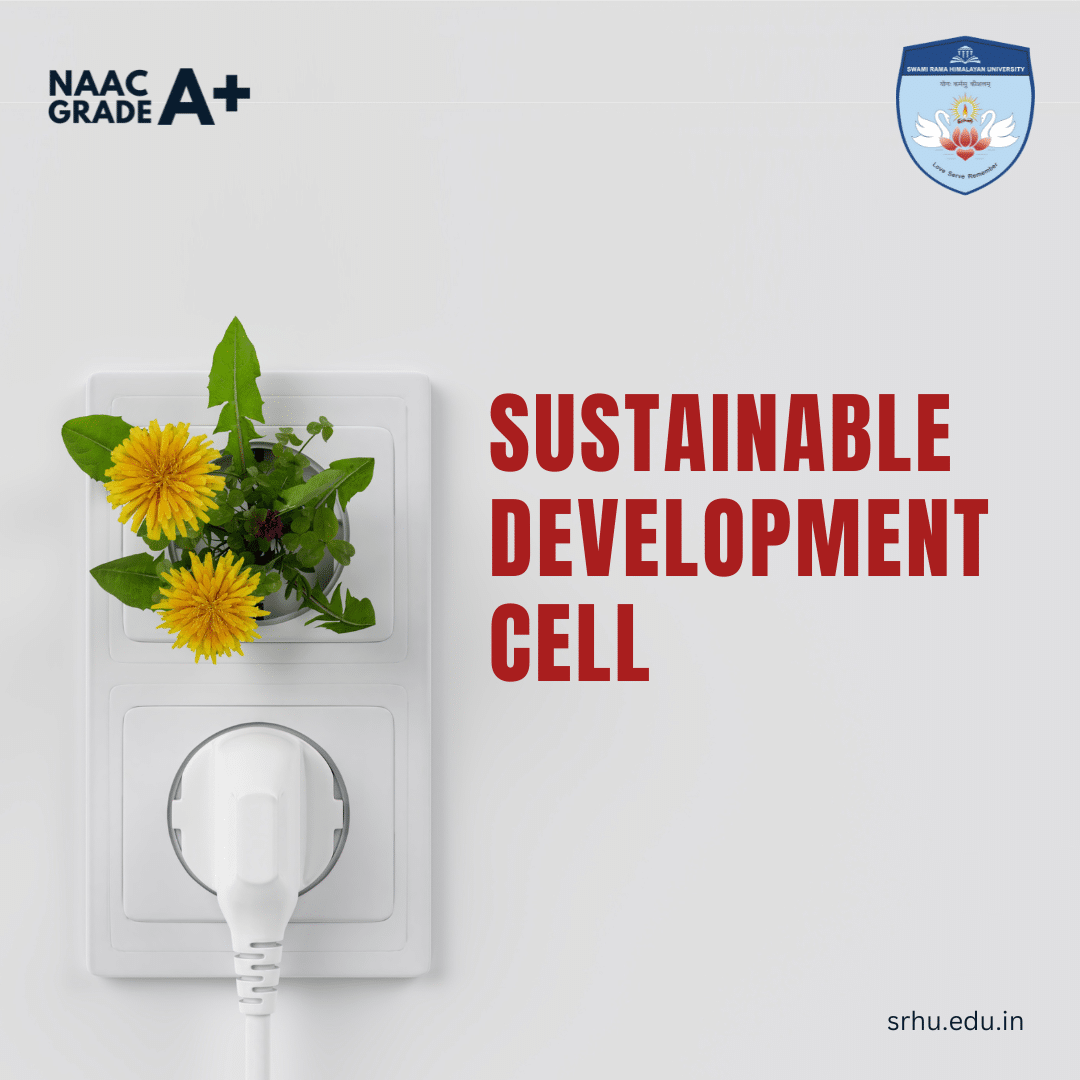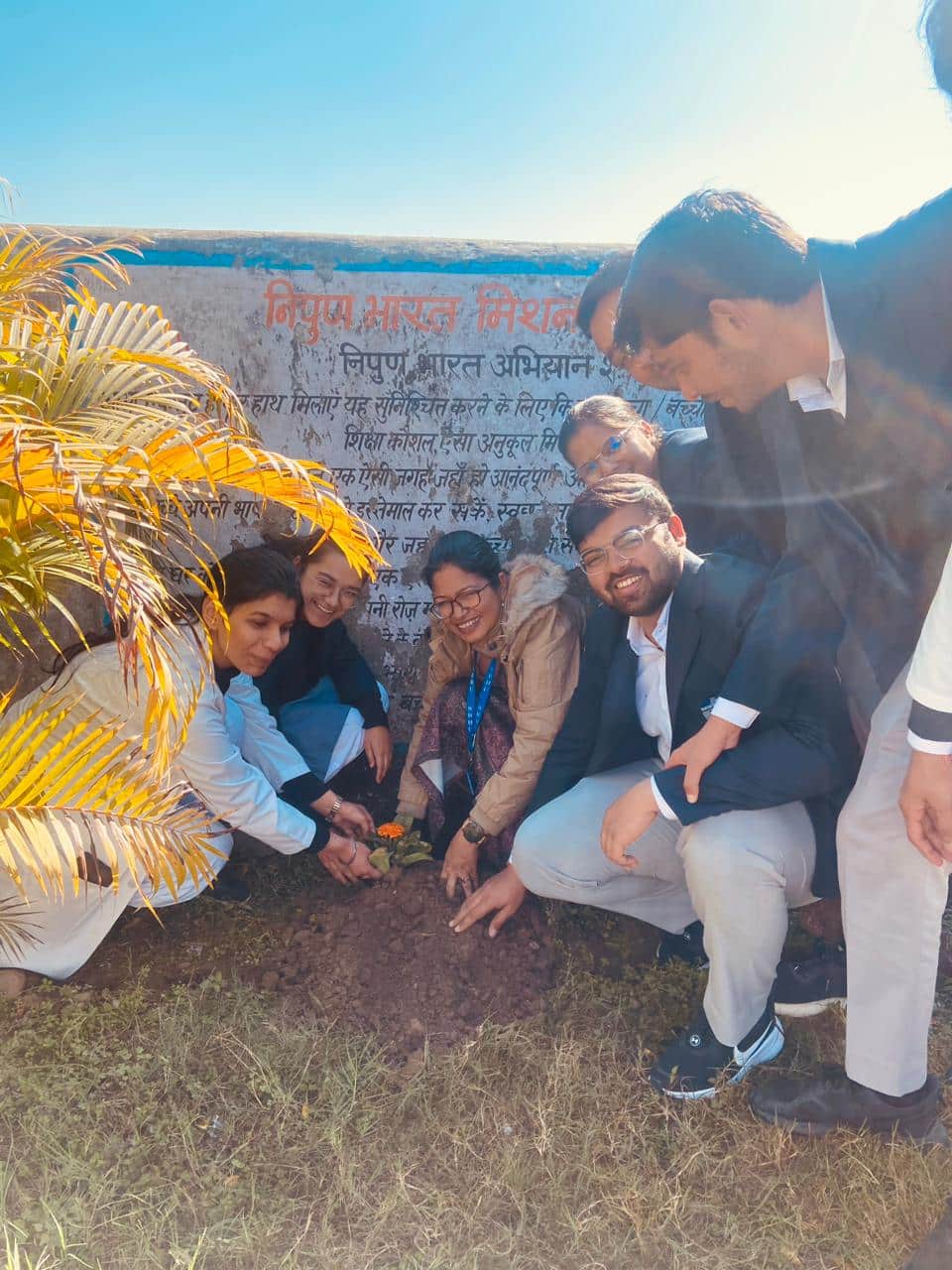

SRHU's Impactful Journey Toward Sustainability
About SDG
Swami Rama Himalayan University (SRHU) exemplifies its commitment to sustainability by integrating green practices across its operations, academics, and community outreach, firmly aligning with the UN Sustainable Development Goals (SDGs). At the core of SRHU’s sustainability initiatives is a comprehensive strategy to reduce its carbon footprint, underpinned by regular carbon audits to monitor direct and indirect emissions. The university implements energy-efficient technologies, including LED lighting, and smart HVAC systems, creating a model for eco-friendly infrastructure.
Renewable energy solutions are central to SRHU’s vision, with a 1,500 KW rooftop solar power plant and biogas system converting organic waste into energy, reducing dependency on fossil fuels. Energy-efficient appliances, such as BLDC fans and BEE star-rated air conditioners, further enhance energy conservation, reflecting the university’s dedication to sustainable operations.
Water conservation remains a critical focus area. SRHU’s advanced rainwater harvesting system captures millions of litres annually, replenishing groundwater and reducing reliance on external water sources. Complementing these efforts are robust sewage and effluent treatment systems. The university operates a 1 MLD (Million Liters per Day) Sewage Treatment Plant (STP) and a 90 KLD (Kilo Liters per Day) Effluent Treatment Plant (ETP), ensuring wastewater is thoroughly treated and repurposed for non-potable uses like irrigation. These initiatives not only prevent environmental degradation but also conserve precious freshwater resources, safeguarding public health and aquatic ecosystems.
The university’s campus is a thriving green belt, home to over 5,000 trees and rich biodiversity, fostering habitats for birds, butterflies, and other wildlife. Tree plantation drives and the creation of microhabitats underscore SRHU’s commitment to ecological balance and climate resilience. Additionally, SRHU’s plastic-free campus initiative, supported by partnerships with local organizations, promotes waste segregation, recycling, and the transformation of waste into reusable resources, reducing environmental impact and raising community awareness.
SRHU’s contributions to sustainable agriculture extend beyond campus. Training programs have empowered over 5,000 farmers in adopted villages to transition to organic farming practices, cultivate aromatic crops, and use water-smart irrigation methods. These efforts enhance agricultural productivity, reduce environmental impacts, and increase rural incomes, fostering economic resilience.
The university integrates sustainability into its academic framework, offering specialized courses and research programs on renewable energy, conservation, and waste management. Community outreach further amplifies these efforts, with initiatives addressing water scarcity, sanitation, and disaster preparedness. Programs like the National Jal Jeevan Mission have trained thousands in water conservation and springshed management, transforming rural communities.
Through innovative infrastructure, cutting-edge research, and transformative community programs, SRHU exemplifies how institutions can lead the way in environmental responsibility. Its holistic approach not only fosters sustainable development but also inspires global action toward a greener, more equitable future.






































